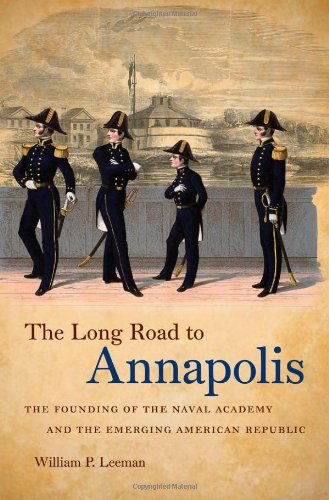Product desciption
The Long Road To Annapolis The Founding Of The Naval Academy And The Emerging American Republic William P Leeman by William P. Leeman 9780807833834, 0807833835 instant download after payment.
The United States established an academy for educating future army officers at West Point in 1802. Why, then, did it take this maritime nation forty-three more years to create a similar school for the navy? The Long Road to Annapolis examines the origins of the United States Naval Academy and the national debate that led to its founding.Americans early on looked with suspicion upon professional military officers, fearing that a standing military establishment would become too powerful, entrenched, or dangerous to republican ideals. Tracing debates about the nature of the nation, class identity, and partisan politics, William P. Leeman explains how the country's reluctance to establish a national naval academy gradually evolved into support for the idea. The United States Naval Academy was finally established in 1845, when most Americans felt it would provide be the best educational environment for producing officers and gentlemen who could defend the United States at sea, serve American interests abroad, and contribute to the nation's mission of economic, scientific, and moral progress.Considering the development of the naval officer corps in relation to American notions of democracy and aristocracy, The Long Road to Annapolis sheds new light on the often competing ways Americans perceived their navy and their nation during the first half of the nineteenth century.The United States established an academy for educating future army officers at West Point in 1802. Why, then, did it take this maritime nation forty-three more years to create a similar school for the navy? The Long Road to Annapolis examines the origins of the United States Naval Academy and the national debate that led to its founding.Americans early on looked with suspicion upon professional military officers, fearing that a standing military establishment would become too powerful, entrenched, or dangerous to republican ideals. Tracing debates about the nature of the nation, class identity, and partisan politics, William P. Leeman explains how the country's reluctance to establish a national naval academy gradually evolved into support for the idea. The United States Naval Academy was finally established in 1845, when most Americans felt it would provide be the best educational environment for producing officers and gentlemen who could defend the United States at sea, serve American interests abroad, and contribute to the nation's mission of economic, scientific, and moral progress.Considering the development of the naval officer corps in relation to American notions of democracy and aristocracy, The Long Road to Annapolis sheds new light on the often competing ways Americans perceived their navy and their nation during the first half of the nineteenth century.


